How To Lose 20 Pounds Fast: 13 Proven Tips With Lasting Results
Effective tips to help you reach your weight goals without losing your mind

Image: Shutterstock
If you have an upcoming event, you may want to lose weight fast and may be wondering how to lose 20 pounds in a week. While we understand it is not exactly possible and even healthy to lose so much weight in a week, we can help you with a sustainable weight loss plan. The right plan can help kick-start your weight loss by boosting metabolism, shedding water weight, and flushing out toxins.
Read on to learn about the 13 best strategies to lose 20 pounds that you can follow for sustainable, long-term weight loss.
In This Article
13 Best Ways To Lose 20 Pounds Fast
If you often wonder how to lose 20 pounds in a week, you are not alone. While this is a common desire, it is not sustainable. Alicia Chacha Miller mentions, “As a non-diet-focused, food-first dietitian, I don’t believe rapid weight loss for an occasion or event should be the goal. While it’s true that looking good can help you feel good, achieving that doesn’t require being in a smaller body. Instead, the focus should be on creating long-term, sustainable lifestyle habits that support your overall health and well-being.”
Therefore, it is important to focus on healthy, sustainable weight loss methods that prioritize your overall well-being instead of looking for shortcuts. The tips below will help you with the same.
1. Drink Up (Water, Of Course!)

Water helps flush out toxins, supports digestion, prevents constipation, reduces bloating, maintains internal pH and homeostasisi A self-regulating process by which biological systems maintain equilibrium between elements while adjusting to external forces. , and induces thermogenesis (the production of heat in the body) (1), (2).
Drink 3-4 liters of water every day as part of your weight loss strategy. Also, drink 500 mL of water at least 20 minutes before a meal. This can help restrict your calorie intake (3).

Drink two glasses of water at room temperature as soon as you wake up. Adding two teaspoons of fenugreek seeds to a glass of water can help improve insulin sensitivity (4). You can also make detox water by adding cucumber, ginger, cumin, and mint leaves. This will promote hydration and boosts overall body functioning.
Alicia adds, “Every person’s path to optimal health is unique, but prioritizing hydration, fiber to keep your digestion regular, and balanced meals with protein, nutrient-dense fats, carbohydrates, and fruits or vegetables can be a great foundation. I like to encourage nutrition by addition—thinking about what you can include in your diet to nourish and support your body—rather than focusing on what to take away. A balanced, sustainable approach will serve you better in the long run than any quick fix.”
 Quick Tip
Quick Tip2. Cut Back On Calories
Determination, commitment and discipline are important when you want to restrict your body to a certain diet plan. Consuming fewer calories creates a negative energy balance in the body, which helps you lose weight. For quick transformation, you can cut at least 500 to 600 calories from the total number of calories you consume now (5), (6). Although this is one of the fastest ways to lose 20 pounds, it is not entirely safe or recommended. Consult your doctor before cutting down on calories.
 Quick Tip
Quick Tip3. Ban Sugar, Junk Food, And Processed Foods
Eliminate all foods high in sugar, sodium, and those loaded with preservatives. Restock your kitchen with whole foods, and low-cal snacks like popcorn, fruits, and veggies. However, eliminating sugar entirely from your diet may also not be good for your health as it is an important source of energy. So, if you crave sweets, instead of having foods with added sugars, have low-calorie unsweetened yogurt with figs or peaches. These contain naturally occurring sugars that do not harm your health if consumed in moderation (7). You can also have one piece of dark chocolate (with 80% or more cocoa) after dinner. It is low in calories and rich in polyphenols that may have anti-obesity benefits (8). Moreover, if you are setting short-term goals regarding weight loss and want to know how to lose weight in a week, these food restrictions and suggestions are not just a method, they are a potential solution that can give you hope and optimism in achieving your weight loss goals. Sticking to this restriction even after your weight loss may help you maintain it well.
4. Have Five Types Of Veggies And Fruits

Consume five types of fruits and veggies per day (9). These are rich in dietary fiber, vitamins, minerals, and phytonutrientsi Natural chemicals produced by plants with antioxidant and anti-inflammatory properties that are beneficial for our overall health. that promote satiety and prevent fat absorption. They are low in calories, improve bowel movement, and help build immunity. Your body’s cells will start to function optimally and use the stored fat as energy and aid weight loss (10). Consume the following:
Fruits – Apple, banana, orange, grapefruit, lemon, lime, plum, cherry, apricot, papaya, pineapple, and peach.
Veggies – Spinach, cauliflower, broccoli, carrot, bell pepper, collard greens, chard, radish, turnip, okra, eggplant, tomato, cucumber, onion, bottle gourd, bitter gourd, scallion, lettuce, cabbage, purple cabbage, bok choy, asparagus, peas, and beetroot.
5. Load Up On Protein
Lean protein sources, like fish, skinless chicken breast, lentils, tofu, mushrooms, eggs, pulses, nuts, and seeds, help increase satiety. They also help build lean muscle, and this improves metabolism (11). This may be because lean muscle contains more mitochondria, which is the powerhouse of the cell that helps generate energy by converting nutrients into usable fuel called ATP. This makes the lean muscle metabolically active (12). This means they burn more calories even at rest compared to fat tissue.
Whether you are snacking or having breakfast, lunch, or dinner, include a source of lean protein like chicken breast, egg, tofu, mushroom, and lentils and beans.
6. Avoid White Carbs
White carbs (or bad carbs) are foods like flour, sugar, pasta, white rice, crackers, and cereals. These are processed, refined, and high in calories with minimal nutrition in them.
Bad carbs tend to increase blood glucose levels and are easily digested (13). Hence, you quickly feel hungry and munch on other processed and high-calorie foods, eventually leading to weight gain. White whole foods like cauliflower, beans, white potato, and turnip do not fall into this category.
7. Consume Healthy Fats
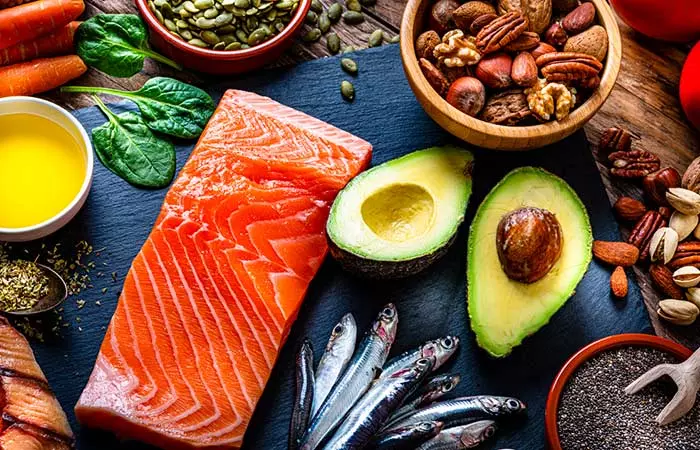
For quick success in your weight loss plan, include healthy fats like fish oil, avocado, avocado oil, nuts, olive oil, and rice bran oil. They contain PUFAs (polyunsaturated fatty acids). PUFAs help reduce inflammation in the body (14), (15). This reduces the risk of inflammation-induced weight gain.
Note: Before making significant changes to your diet, consider consulting a registered dietitian. They can offer tailored advice to ensure you are meeting your nutritional needs without any potential risks. Professional guidance is especially recommended if you are pregnant or breastfeeding or have any pre-existing medical conditions or specific dietary restrictions.
8. Eat On Time And Control Your Portion Size
Eating at odd times, starving for a long duration, or being unaware of portion sizes can contribute to weight gain more than the food itself (16). Hence, it is important to practice portion control, eat every 3-4 hours, have regular breakfast, take dinner by 7:30 pm, and avoid late-night snacking.
Also, starving yourself can lead to weight gain as the body goes into a famine mode, provoking the cells to store everything you eat in the form of fat (17). Do not starve yourself. If you feel hungry at odd times, have a fruit or baby carrots with hummus.
9. Avoid Distractions While Eating
Research suggests using screens during meals may contribute to weight gain. This is because it can distract you from mindful eating, reducing awareness of portion sizes and hunger cues. As a result, you may consume more food and calories than intended, increasing the risk of weight gain over time (18). So, toss away your phone, shut down the laptop, switch off the TV, and concentrate on what you are eating. It is a great tip for quick as well as long-term weight loss achievement.
When you look at your food and eat, your brain gets the signal that you have eaten and are full. Multitasking while you eat makes you feel hungry soon after as you have not given your brain the visual cue of how much you have eaten.
10. Stay Active

The problem with quick weight loss is that you not only regain the weight quickly but also have loose skin. The latter happens because losing weight rapidly may damage collagen and elastin proteins, which support the structure of your skin. Collagen provides strength, and elastin gives skin its ability to stretch and snap back. If these are weakened or broken down, your skin loses its elasticity and can not tighten after the weight loss (19). So, you must work out regularly and lose weight gradually, over time to look toned. For example, if you’re trying to lose belly fat in a week, it is best to work out regularly to aim for a sustainable approach instead of resorting to crash diets or extreme measures.
If you are not a fan of the treadmill, you can do yoga, dance, swim, ride a bike, etc. Remember motivation is the key to your success. Do a little HIITi A training protocol alternating between short periods of intense anaerobic exercises and rest, which helps burn excess fat. and bodyweight training to flaunt a chiseled look. Working out may help mobilize the fat, improve your metabolic rate, and help you maintain the lost weight and sleep better at night (20), (21), (22).
Also, you must keep moving. Take a walk every one hour, walk to and from office, ride a bicycle to the supermarket, take the stairs instead of the elevator, or walk your dog twice a day. This will keep your metabolism firing throughout the day and help you shed the pounds quickly. Make sure you take 10,000 steps a day.
11. Get Your Beauty Sleep
It has been scientifically proven that not getting enough sleep or rest can lead to weight gain(23). When you regularly sleep for less than seven hours, ghrelin (a hormone that induces hunger) levels and inflammation increase and cause salt retention in the body (24). As a result, you will start gaining weight and feel tired, even if you have not moved from your seat the entire day.
 Quick Tip
Quick Tip12. Take No Stress

If you are constantly googling “How to lose weight fast?” and are short on time, do not go into panic mode. Stress, panic, and anxiety raise the levels of cortisol, the stress hormone (25). This hormone shuts down the brain’s decision-making process, which may make you an emotional eater. This can lead to long-term weight gain.
13. Lifting Weights
When it comes to losing weight, lifting weights can be a useful method of building muscle mass. Training your muscles is your secret weapon for weight loss because it helps you increase your resting metabolic rate by which you burn calories even when you are at rest (26).
Weightlifting also increases your metabolism for hours after a session, helping you keep burning calories (27), (28). It helps you target fat and preserves your muscles during your weight loss journey (29), (30). This is essential so that you do not lose muscle mass, which is denser, instead of fat and are able to transform your body.
You can reduce stress and other negative emotions in simple ways – appreciate people, take a walk, talk to a trusted friend, do something creative, like painting or playing a musical instrument, dance, write a journal, and laugh.
A blogger, mentioned as Wolf of 1st Street, shared his journey following a 10-day water fast to lose weight. He says “I lost 20 pounds in the year 2025 and it’s only the 11th of January (i).”
Key Takeaways
- Losing 20 pounds in a week is a short-term weight loss goal that can be hard to achieve. However, you may lose weight over time by opting for a low-calorie and high-fiber diet.
- One of the key habits to incorporate into one’s diet is drinking plenty of water everyday. An adult human being needs to drink at least 4 liters of water everyday.
- Following a healthy diet that includes fruits and vegetables and lean protein sources and cutting down on processed foods is crucial to the journey.
- Staying active and restful sleep help reduce stress. This directly impacts digestion and the weight you gain or lose.
While the above strategies may help you lose weight, it is important to note that losing 20 pounds in a week is generally not considered safe or sustainable. Learn more about it in the next section.
Is It Safe To Lose 20 Pounds In A Week?
No, the claim of losing 20 pounds in a week is unrealistic and unsafe. Studies have shown that extreme weight loss in such a short period can result in serious health issues, including dehydration, nutritional deficiencies, muscle loss, and the formation of gallstones (31), (32). Therefore, it is important to prioritize safe, sustainable methods for weight loss to ensure long-term health and well-being.
The Centers for Disease Control and Prevention (CDC) specifies that a safe and sustainable rate of weight loss is about 1–2 pounds per week (33). The National Health Service (NHS) also suggests that same and emphasizes that gradual weight loss through a balanced diet and regular physical activity is the most effective and safe way to achieve long-term results (34).
Staci Gulbin, MS, MEd, RD, LDN, mentions, “Losing more than two pounds a week is not safe or sustainable. Engaging in restrictive fad diets that promote rapid weight loss and/or labeling foods “good,” “bad,” or “toxic” can increase one’s risk of dysfunctional or disordered eating behaviors, which can be harmful to mental and physical health. It’s best to have patience with your body and make small, sustainable healthy lifestyle changes so you can manage your weight best for the long term.”
Therefore, while you can follow the strategies mentioned in the article above to lose weight, it is important to set realistic expectations. Go for achievable goals to help build momentum and sustain long-term healthy habits. Remember, small, consistent steps often lead to the most meaningful changes and sustainable weight loss.
Infographic: Top 7 Tips On How To Lose 20 Pounds Fast
While weight loss is a tedious journey and requires constant effort, you may not always have the energy or time to try a long-term plan, especially if there is an important event coming up. You sure wish to look your best, but losing those extra pounds wouldn’t be easy. So, what is the solution? In the infographic below, we have listed the top 7 effective weight loss tips that will help you reach your goal in a shorter span. Check them out!

Illustration: StyleCraze Design Team
While the idea of learning how to lose 20 pounds in a week may sound appealing, it is important to recognize that such rapid weight loss is neither sustainable nor healthy. Instead, you can include the above tips and tricks in your daily fitness goal for gradual and lasting results. You can opt for food low in calories and high in fiber to help you lose that extra flab faster. While counting your calories, and exercising regularly is important, you must focus on losing weight in a healthy manner rather than starving yourself or overdoing workouts. Keeping a track of your progress, getting proper sleep, staying well-hydrated and leading an active lifestyle would ultimately help you lose weight in a more sustainable way.
Frequently Asked Questions
How long does it take to lose 20 pounds?
You can lose 20 pounds in about 20 weeks. However, you may go on a VLCD (very low-calorie diet) and adhere to a workout routine to speed up the weight loss process after consulting your doctor and dietitian.
How many calories do you need to burn to lose 20 pounds?
You need to burn 3500 calories to lose one pound. You need to burn 70,000 calories to lose 20 pounds.
How can I lose a pound in a day?
You need to follow a strict calorie-deficit diet along with increasing your energy expenditure to lose a pound of weight every day. However, this approach is unhealthy and not recommended.
How much should I walk a day to lose 2 pounds a week?
Walking about 20,000 steps a day for an entire week may help you lose 2 pounds. In addition to this, you also need to maintain a balanced diet and follow healthy dietary changes like practicing portion control and avoiding processed food.
What exercises burn 3500 calories?
Performing energy-intensive activities like running, swimming, playing squash, skipping, and cycling for about 3 hours may help you burn 3500 calories.
How much weight can a person lose in a week?
A person may be able to lose 1 to 2 pounds in a week by following a calorie deficit diet and an exercise program.
How many calories should I eat in a day to lose 20 pounds?
You can lose 20 pounds if you have a calorie deficit of about 2500 calories a day for an entire month. However, this approach to weight loss is not sustainable and is not recommended.
How much weight will I lose if I eat 1000 calories a day?
Consuming 1000 calories a day for a week may help you lose anywhere between 2 to 3 pounds. But this approach can cause long-term harm to your health and is not recommended.
Lose 20 pounds with these simple weight loss tips! Check out this video to learn healthy lifestyle changes to reach your goals quickly and effectively.
Personal Experience: Source
StyleCraze's articles are interwoven with authentic personal narratives that provide depth and resonance to our content. Below are the sources of the personal accounts referenced in this article.
(i).How I lost 20 lbs in 10 days!https://bhowards.medium.com/how-i-lost-20-lbs-in-10-days-ae6a97352bc0
References
Articles on StyleCraze are backed by verified information from peer-reviewed and academic research papers, reputed organizations, research institutions, and medical associations to ensure accuracy and relevance. Read our editorial policy to learn more.
- Effect of ‘water induced thermogenesis’ on body weight, body mass index and body composition of overweight subjects, Journal of Clinical and Diagnostic Research, US National Library of Medicine, National Institutes of Health.
https://www.ncbi.nlm.nih.gov/pmc/articles/PMC3809630/ - Water, hydration, and health, Nutrition Reviews, US National Library of Medicine, National Institutes of Health.
https://www.ncbi.nlm.nih.gov/pmc/articles/PMC2908954/ - Water consumption increases weight loss during a hypocaloric diet intervention in middle-aged and older adults, Obesity (Silver Spring, Md.), US National Library of Medicine, National Institutes of Health.
https://www.ncbi.nlm.nih.gov/pmc/articles/PMC2859815/ - Insulin-Sensitizer Effects of Fenugreek Seeds in Parallel with Changes in Plasma MCH Levels in Healthy Volunteers, International Journal of Molecular Sciences, US National Library of Medicine, National Institutes of Health.
https://www.ncbi.nlm.nih.gov/pmc/articles/PMC5877632/ - Low-calorie diets and sustained weight loss, Obesity Research, US National Library of Medicine, National Institutes of Health.
https://pubmed.ncbi.nlm.nih.gov/11707556/ - A multicentre weight loss study using a low-calorie diet over 8 weeks: regional differences in efficacy across eight European cities, Swiss Medical Weekly, US National Library of Medicine, National Institutes of Health.
https://pubmed.ncbi.nlm.nih.gov/23348658// - Naturally occurring and added sugar in relation to macronutrient intake and food consumption: results from a population-based study in adults, US National Library of Medicine, National Institutes of Health.
https://pmc.ncbi.nlm.nih.gov/articles/PMC5465852/ - Dark chocolate: An overview of its biological activity, processing, and fortification approaches, US National Library of Medicine, National Institutes of Health.
https://pmc.ncbi.nlm.nih.gov/articles/PMC9589144/ - Fruit and Vegetable Intake: Benefits and Progress of Nutrition Education Interventions- Narrative Review Article, Iranian Journal of Public Health, US National Library of Medicine, National Institutes of Health.
https://www.ncbi.nlm.nih.gov/pmc/articles/PMC4644575/ - Changes in Intake of Fruits and Vegetables and Weight Change in United States Men and Women Followed for Up to 24 Years: Analysis from Three Prospective Cohort Studies, PLoS medicine, US National Library of Medicine, National Institutes of Health.
https://pubmed.ncbi.nlm.nih.gov/26394033// - Protein, weight management, and satiety, The American Journal of Clinical Nutrition, US National Library of Medicine, National Institutes of Health.
https://pubmed.ncbi.nlm.nih.gov/18469287/ - Mitochondrial Properties in Skeletal Muscle Fiber, US National Library of Medicine, National Institutes of Health.
https://pmc.ncbi.nlm.nih.gov/articles/PMC10486962/ - Physiology, Carbohydrates, StatPearls, US National Library of Medicine, National Institutes of Health.
https://www.ncbi.nlm.nih.gov/books/NBK459280/ - Polyunsaturated fatty acids, inflammation and immunity, European Journal of Clinical Nutrition, US National Library of Medicine, National Institutes of Health.
https://pubmed.ncbi.nlm.nih.gov/12142955// - Obesity and inflammation: the effects of weight loss, Nutrition Research Reviews, US National Library of Medicine, National Institutes of Health.
https://pubmed.ncbi.nlm.nih.gov/19087366// - What is the role of portion control in weight management? International journal of obesity, US National Library of Medicine, National Institutes of Health.
https://pubmed.ncbi.nlm.nih.gov/25033958// - An adaptive response to uncertainty can lead to weight gain during dieting attempts, Evolution, Medicine, and Public Health, US National Library of Medicine, National Institutes of Health.
https://www.ncbi.nlm.nih.gov/pmc/articles/PMC5139007/ - Television viewing and using screens while eating: associations with dietary intake in children and adolescents, US National Library of Medicine, National Institutes of Health.
https://pmc.ncbi.nlm.nih.gov/articles/PMC8671257/ - Image Analyzer Study of the Skin in Patients With Morbid Obesity and Massive Weight Loss, US National Library of Medicine, National Institutes of Health.
https://pmc.ncbi.nlm.nih.gov/articles/PMC4311578/ - The role of exercise and physical activity in weight loss and maintenance, Progress in Cardiovascular Diseases, US National Library of Medicine, National Institutes of Health.
https://www.ncbi.nlm.nih.gov/pmc/articles/PMC3925973/ - The influence of physical activity on BMR, Medicine and Science in Sports and Exercise, US National Library of Medicine, National Institutes of Health.
https://pubmed.ncbi.nlm.nih.gov/8775359// - Exercise can improve sleep quality: a systematic review and meta-analysis, PeerJ, US National Library of Medicine, National Institutes of Health.
https://www.ncbi.nlm.nih.gov/pmc/articles/PMC6045928/ - Sleep and obesity, Current Opinion in Clinical Nutrition and Metabolic Care, US National Library of Medicine, National Institutes of Health.
https://www.ncbi.nlm.nih.gov/pmc/articles/PMC3632337/ - Sleep deprivation and obesity in adults: a brief narrative review, BMJ Open Sport & Exercise Medicine, US National Library of Medicine, National Institutes of Health.
https://www.ncbi.nlm.nih.gov/pmc/articles/PMC6196958/ - Stress and Obesity: Are There More Susceptible Individuals? Current Obesity Reports, US National Library of Medicine, National Institutes of Health.
https://www.ncbi.nlm.nih.gov/pmc/articles/PMC5958156/ - Effect of resistance training on resting metabolic rate and its estimation by a dual-energy X-ray absorptiometry metabolic map
https://pubmed.ncbi.nlm.nih.gov/25293431/ - The effect of exercise interventions on resting metabolic rate: A systematic review and meta-analysis
https://pubmed.ncbi.nlm.nih.gov/32397898/ - Effects of exercise-induced muscle damage on resting metabolic rate, sub-maximal running and post-exercise oxygen consumption
https://pubmed.ncbi.nlm.nih.gov/23566074/ - Exercise training and energy expenditure following weight loss
https://www.ncbi.nlm.nih.gov/pmc/articles/PMC4508245/ - Preserving healthy muscle during weight loss
https://www.ncbi.nlm.nih.gov/pmc/articles/PMC5421125/ - Effects of different rapid weight loss strategies and percentages on performance-related parameters in combat sports: An updated systematic review
https://pmc.ncbi.nlm.nih.gov/articles/PMC10048848/ - Dieting & gallstones
https://www.niddk.nih.gov/health-information/digestive-diseases/gallstones/dieting - Steps for losing weight
https://www.cdc.gov/healthy-weight-growth/losing-weight/ - Tips to help you lose weight
https://www.nhs.uk/live-well/healthy-weight/managing-your-weight/tips-to-help-you-lose-weight/
Read full bio of Merlin Annie Raj
- As a registered dietitian since 2010 and a freelance health writer since 2011, Staci has treated hundreds of patients for nutrition-related issues. She also has written for popular sites like Shape, Health, and GoodRx, and has also worked as a Featured Nutrition Expert for OprahMag, StyleCraze, and EatThisNotThat. You can keep up with her latest articles and featured publications on her blog – www.lighttracknutrition.com.Staci has graduated from Columbia University. She also authored a self-help eBook How to Reset Your Health and two cookbooks titled The High Protein Bariatric Cookbook and The Healthy Bariatric Smoothies Recipe Book. She hopes to use her writing to help others become their healthiest self.Staci, at the moment, is shopping for an agent for her latest book project focused on revolutionizing the way we talk about food.
 As a registered dietitian since 2010 and a freelance health writer since 2011, Staci has treated hundreds of patients for nutrition-related issues. She also has written for popular sites like Shape, Health, and GoodRx, and has also worked as a Featured Nutrition Expert for OprahMag, StyleCraze, and EatThisNotThat. You can keep up with her latest articles and featured publications on her blog – www.lighttracknutrition.com.Staci has graduated from Columbia University. She also authored a self-help eBook How to Reset Your Health and two cookbooks titled The High Protein Bariatric Cookbook and The Healthy Bariatric Smoothies Recipe Book. She hopes to use her writing to help others become their healthiest self.Staci, at the moment, is shopping for an agent for her latest book project focused on revolutionizing the way we talk about food.
As a registered dietitian since 2010 and a freelance health writer since 2011, Staci has treated hundreds of patients for nutrition-related issues. She also has written for popular sites like Shape, Health, and GoodRx, and has also worked as a Featured Nutrition Expert for OprahMag, StyleCraze, and EatThisNotThat. You can keep up with her latest articles and featured publications on her blog – www.lighttracknutrition.com.Staci has graduated from Columbia University. She also authored a self-help eBook How to Reset Your Health and two cookbooks titled The High Protein Bariatric Cookbook and The Healthy Bariatric Smoothies Recipe Book. She hopes to use her writing to help others become their healthiest self.Staci, at the moment, is shopping for an agent for her latest book project focused on revolutionizing the way we talk about food. - Alicia Chacha Miller is a Registered Dietitian specializing in maternal and pediatric nutrition. She obtained her Master's degree in Nutrition Sciences from the University of Southern California. Her work is focused on bridging the gap in health disparities between BIPOC (Black, Indigenous, and People of Color) and other races by making nutrition education available, accessible, and easy to understand. She is the founder of The Cardamom Nutrition, where evidence-based practice, diversity, inclusion, cultural competence, and compassion all collide.
 Alicia Chacha Miller is a Registered Dietitian specializing in maternal and pediatric nutrition. She obtained her Master's degree in Nutrition Sciences from the University of Southern California. Her work is focused on bridging the gap in health disparities between BIPOC (Black, Indigenous, and People of Color) and other races by making nutrition education available, accessible, and easy to understand. She is the founder of The Cardamom Nutrition, where evidence-based practice, diversity, inclusion, cultural competence, and compassion all collide.
Alicia Chacha Miller is a Registered Dietitian specializing in maternal and pediatric nutrition. She obtained her Master's degree in Nutrition Sciences from the University of Southern California. Her work is focused on bridging the gap in health disparities between BIPOC (Black, Indigenous, and People of Color) and other races by making nutrition education available, accessible, and easy to understand. She is the founder of The Cardamom Nutrition, where evidence-based practice, diversity, inclusion, cultural competence, and compassion all collide.
Read full bio of Ravi Teja Tadimalla
Read full bio of Aparna Mallampalli
















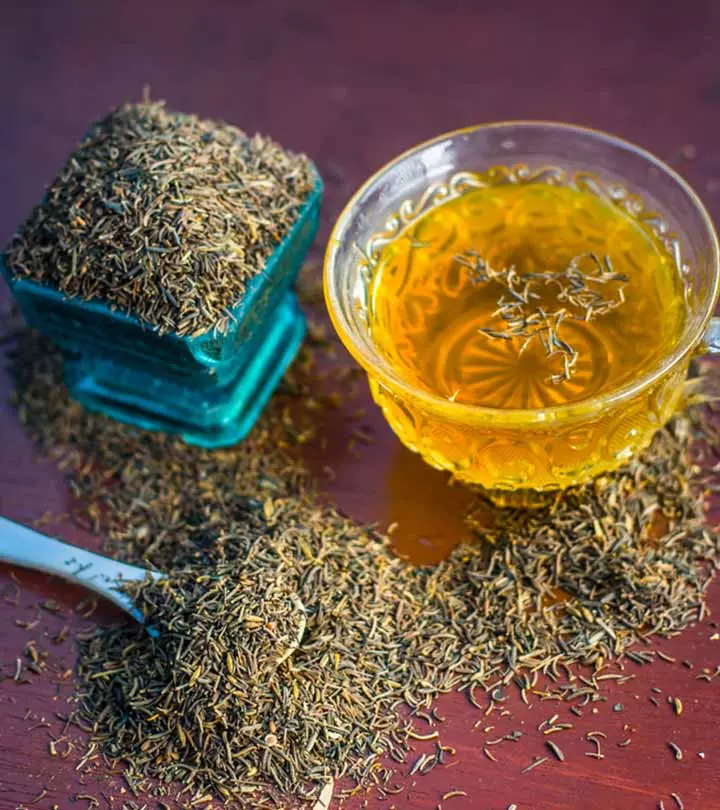

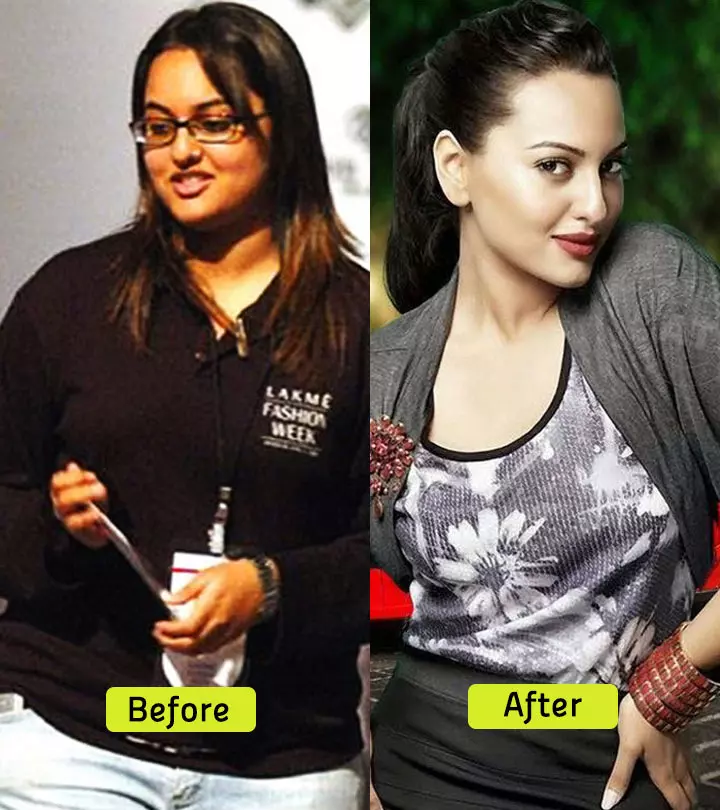
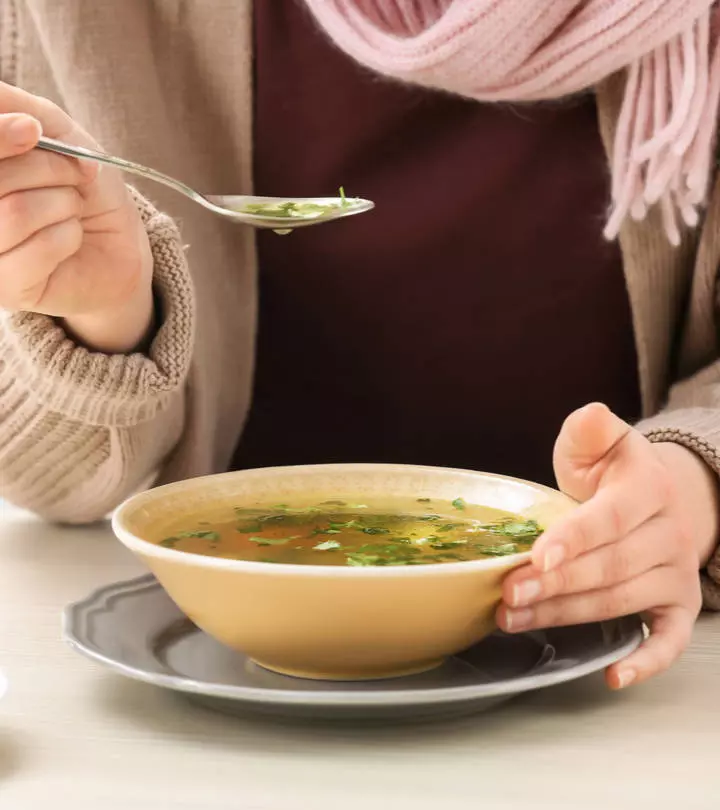



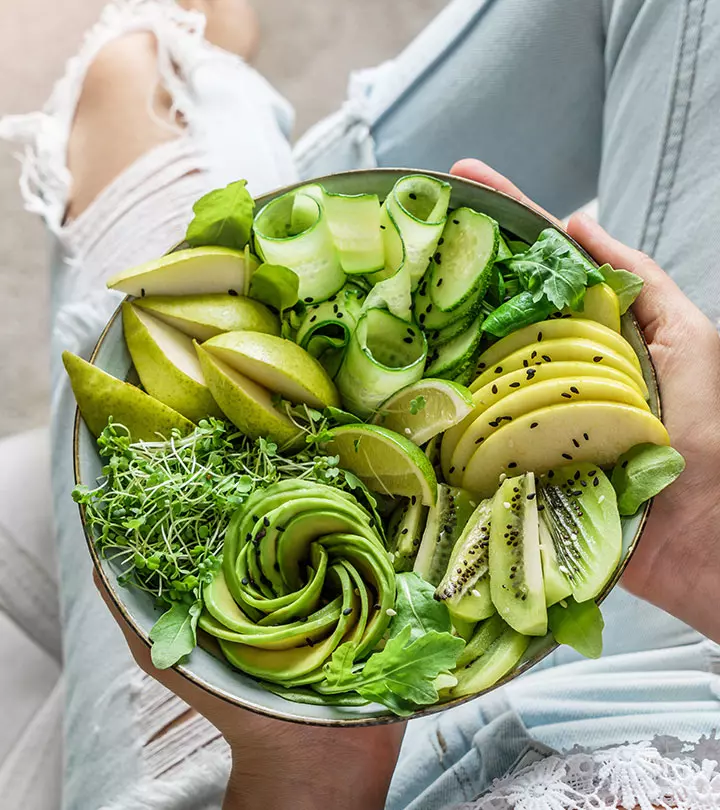




Community Experiences
Join the conversation and become a part of our empowering community! Share your stories, experiences, and insights to connect with other beauty, lifestyle, and health enthusiasts.